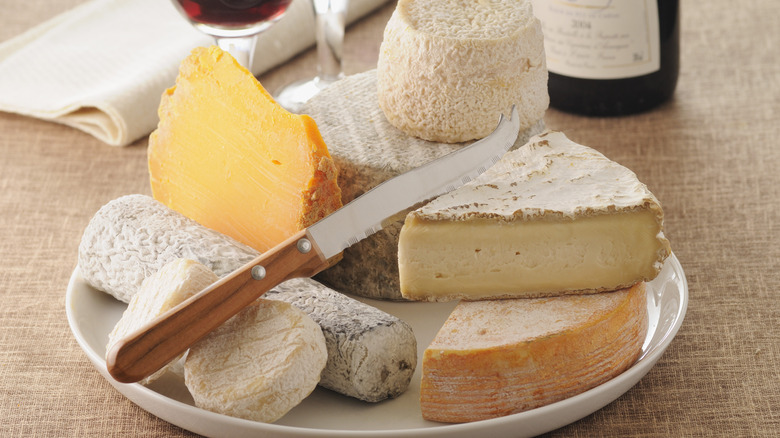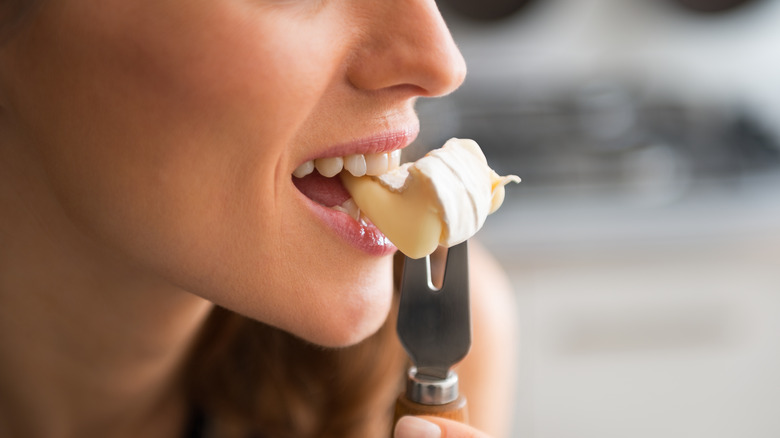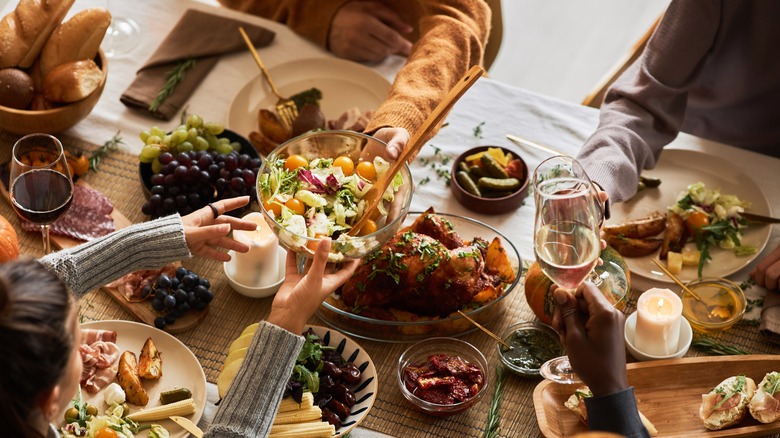Why Cheese Boards Are Served After Dinner In France
Here in the United States, we love a big cheese board with all the accouterments and charcuterie. The more cheese, the better. From pillowy baked brie, sharp cheddar, and funky bleu, getting dinner started with friends and family with a trough of a grazing board is seen as celebratory and social. But across the pond, it's a different story.
France has a love affair with cheese. The French have multiple annual cheese competitions to determine who makes the best wheels, boasting more than a thousand varieties made in the country alone, according to Cheeses of France. Appellation d'Origine Contrôlée (AOC) is a designation in France used to regulate the production, storage, maturity, and geography of the cheese. So, you know they take it seriously, including the timing of when to consume it. Instead of indulging in dairy before a big dinner, as we do in the U.S., the French do it afterward. Cheese is the buffer between the main course and dessert. And there's a good reason for it.
The French regard cheese as a digestif
A great reason to eat a small serving of cheese at the end of a meal is because it has several probiotics that aid digestion. The French eat their cheese as a digestif, instead of an aperitif. The naturally occurring "good bacteria" in high-quality cheese (we're not talking about American cheese slices here) can promote gut health. It is also a good source of calcium, which helps with digestion, along with promoting bone and teeth health.
According to Harvard Medical School, cheese that has been aged but not heated afterward contains the probiotics needed for digestion. This includes both soft and hard cheeses, including good quality Swiss, provolone, Gouda, cheddar, Edam, gruyère, and cottage cheese.
But don't go overboard. Because cheese can have a high fat content, moderation is key. The French tend to enjoy small cuts of cheese after a meal, rather than large portions. A variety of about three to four different cheeses is ideal, working your way from the mildest to the strongest offering.
Slowing down
The French love to slow down to savor a meal. A lunch can last more than an hour, capped with an espresso and chocolate. Dinner is a longer affair, meant to keep you at the table for hours, socializing with your company. This act of slowing down and taking your time allows your body to digest food slowly, too. Starting with a salad and bread, moving to a protein and veggie-rich dinner, and then cheese as a digestif before dessert is a map to regulate steady digestion.
Cheese can also help cleanse the palate after a meal, especially if the meal you just ate was rich or heavy. The different flavors and textures of cheese can refresh the taste buds and prepare them for dessert at the end of the meal. Portions are key for each course, so there's never an overindulgence. That's why there's always room for wine, and you can even play around with the best wine and cheese pairings while you're at it.
So, the next time you have a dinner party, try serving it up the French way. You might be surprised with how well the cheese course works after the main course. Plus, your guests will be impressed!


